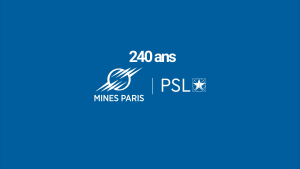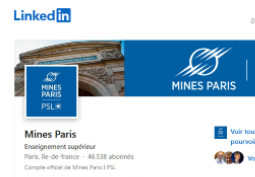



 Lecture
Lecture
Bio-based aerogels: new eco-friendly porous materials for thermal insulation and controlled release
Le Dr. Leon-Hien Poh, en visite au Centre des Matériaux le 2 juin 2015, donnera un séminaire exceptionnel à 10h.
Résumé : Classical continuum models, being scale independent, are inadequate in applications where the characteristic loading wavelength approaches that of the microstructural length-scale. One popular remedy is to adopt the so-called ‘micromorphic’ theory which embeds a micro-system into the macro-continuum, and accounts for the micro-macro coupling via additional (higher order) kinematic fields describing the micro-deformation. In literature, most micromorphic theories follow a top-down approach, where macroscopic potentials and/or constitutive equations are postulated a priori. Though applied in many problems with good results, the top-down approach has the following drawbacks:
· It is usually non-trivial to postulate the ‘correct’ macroscopic potentials and/or constitutive equations.
· The phenomenological macroscopic equations typically involve several parameters to be calibrated against experimental data and/or fine-scale simulation results. Consequently, they have limited predictive capabilities beyond the specific conditions which modelling parameters are calibrated against.
· In theory, the modeling length scale parameter characterizes the average wavelength of the micro-process. In practice, its exact definition is usually not clear. In many cases, it degenerates to yet another calibration parameter.
· In many models, the additional ‘morphic’ kinematic field does not have a clear physical interpretation.
In this seminar, we present a fundamentally different approach that seeks to address the abovementioned limitations. First, we identify and introduce additional kinematic fields that describe a physical deformation process within a unit cell. Next, a bottom-up homogenization process is adopted, to ensure that the micro and macro formulations are thermodynamically consistent. The macroscopic constitutive relations are then extracted from the homogenized potentials as per standard thermodynamics procedure – instead of being postulated a priori as in the conventional approach – through which a micromorphic model is recovered at the macro scale. To illustrate the predictive capabilities of the bottom-up theory, we consider two different material models at the sub-granular scale: (i) a gradient plasticity model; (ii) a cohesive damage model. For the two cases, an excellent match between the homogenized solutions and detailed numerical simulations is obtained for a range of material parameters.

Ecole
240 ans de recherche et de formation
Vidéo : 240ans de recherche…
> En savoir +
Recherche
Prix Jean Mandel 2023 mécanique des matériaux
Le prix Jean Mandel décerné tous les…
> En savoir +

Formation
Samuel Forest, élu membre de l’Académie des…
Samuel Forest lors de sa réception à…
> En savoir +

Formation
Mines Paris plébiscitée par ses étudiantes
Mines Paris - PSL, une école qui répond…
> En savoir +

Formation
Femmes de science
Chercheuses confirmées, doctorantes, élèves ou alumni,…
> En savoir +

Formation
Quelle école d’ingénieurs a le…
Mines Paris - PSL au Top 5 du classement LinkedIn 2023…
> En savoir +
